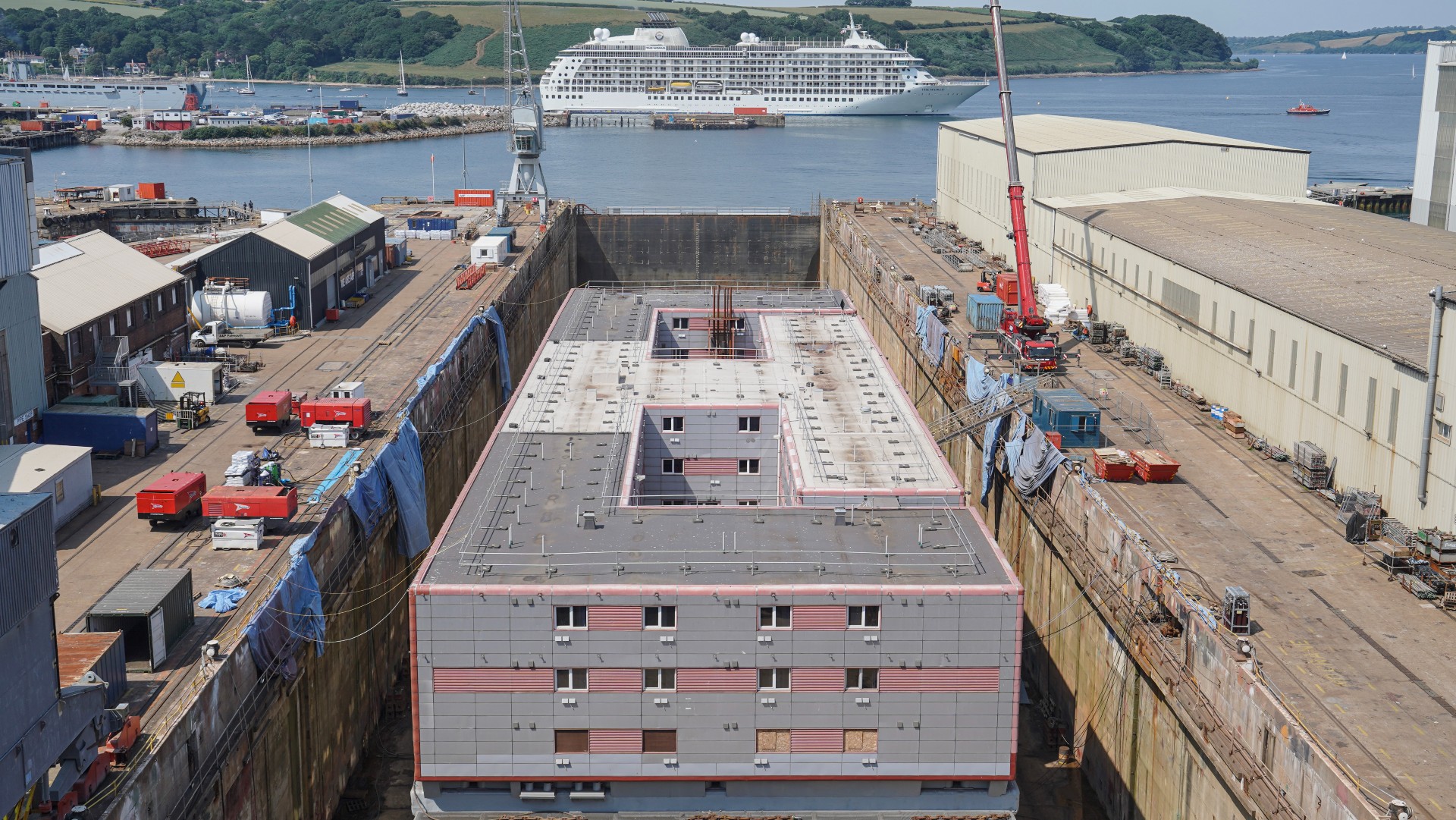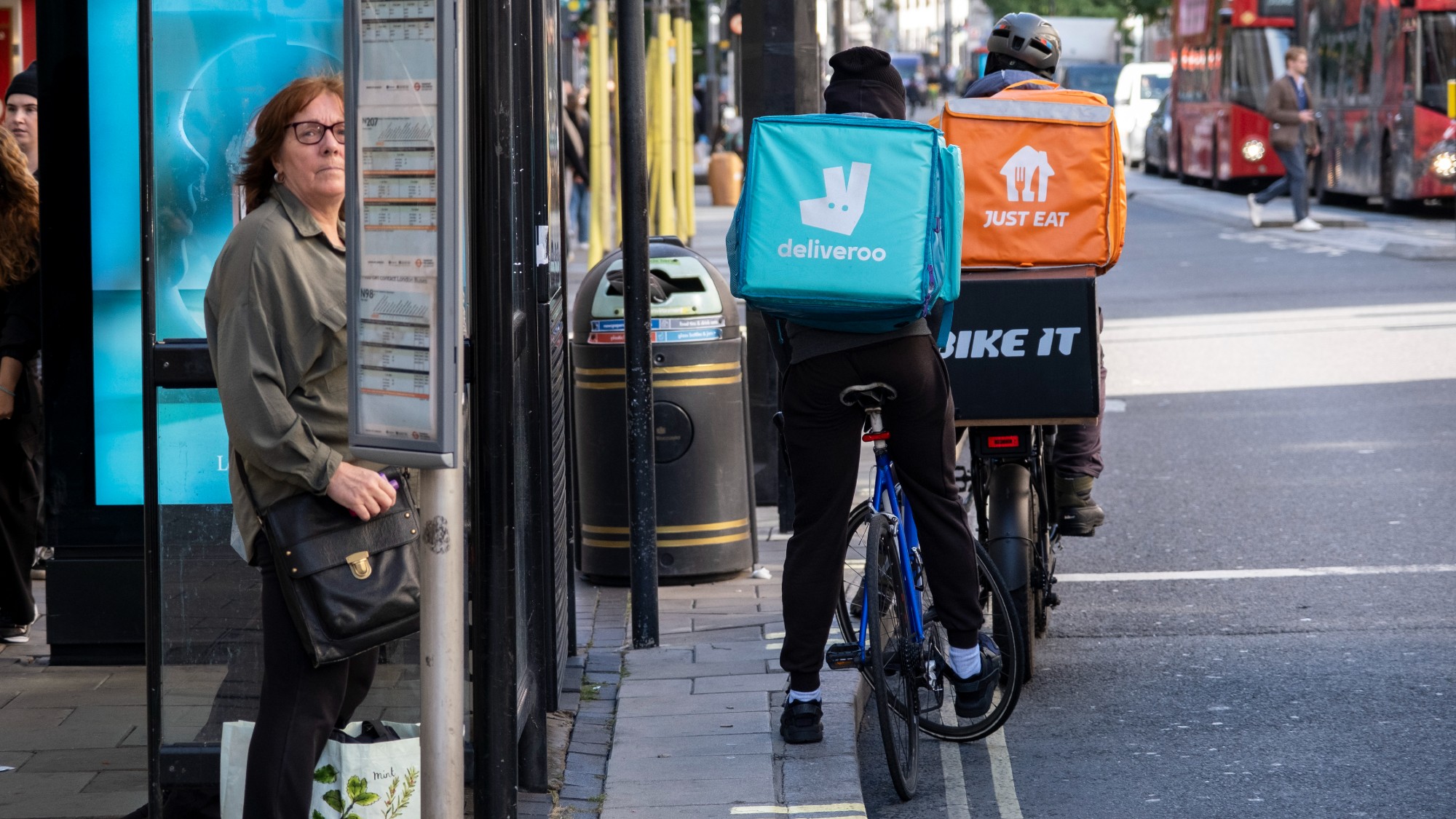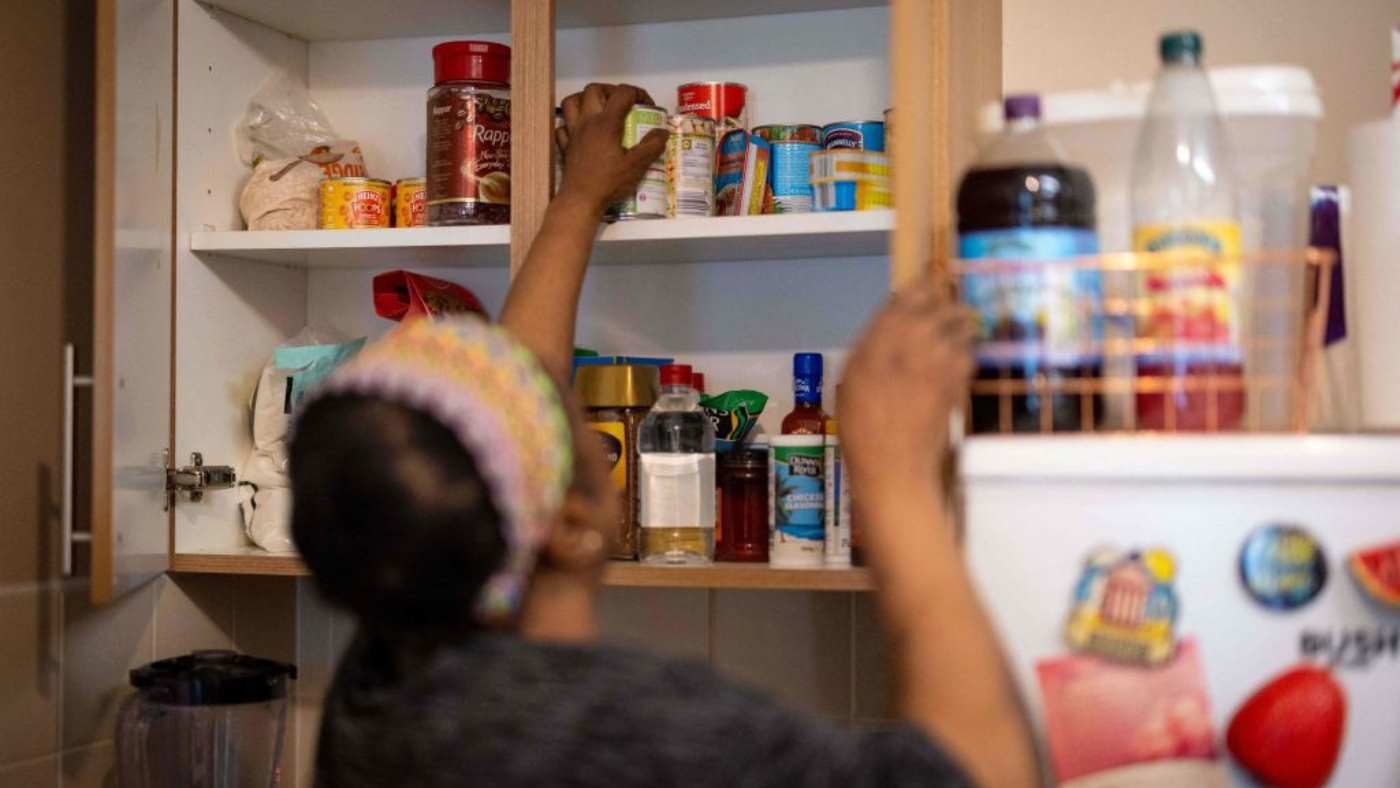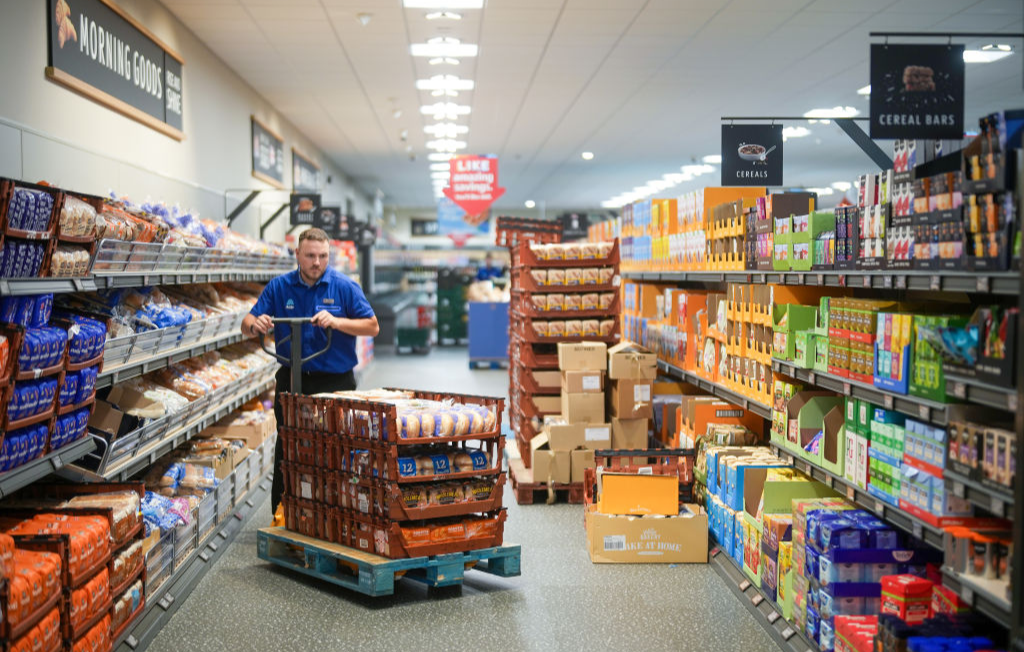The cost of housing asylum seekers examined
UK government plans to host undocumented arrivals on barges to cut hotel bills

A free daily email with the biggest news stories of the day – and the best features from TheWeek.com
You are now subscribed
Your newsletter sign-up was successful
With the UK struggling to process record numbers of asylum seekers arriving on its shores, questions continue to be asked about the cost of the country’s immigration policy.
The government has “quietly handed” a £1.6 billion contract for its planned asylum-seeker housing barges to an Australian travel firm, Corporate Travel Management, said The Independent.
The two-year deal will cover the Bibby Stockholm and two additional vessels announced by Prime Minister Rishi Sunak earlier this month, “as well as bridging accommodation and travel services”, the Home Office told the news site.
The Week
Escape your echo chamber. Get the facts behind the news, plus analysis from multiple perspectives.

Sign up for The Week's Free Newsletters
From our morning news briefing to a weekly Good News Newsletter, get the best of The Week delivered directly to your inbox.
From our morning news briefing to a weekly Good News Newsletter, get the best of The Week delivered directly to your inbox.
The three-storey “floatel”, moored in the privately run Portland Harbour off Weymouth in Dorset, would be “significantly cheaper” than hotels, said the Home Office. But MPs have refused to share the estimated costs of the scheme, and it faces local opposition even within the Conservative Party.
How much does it really cost to house asylum seekers?
Home Office estimates in February found there were “more than 45,500 asylum seekers in hotels costing the UK taxpayer £5.6 million a day”, approximately £2 billion a year. This was more than in 2022, when the department said the £1.5 billion-a-year system was costing “the highest amount in over two decades”.
The Daily Express claimed in March that “taxpayer funded hotels” were costing £6.8 million a day. But this ignores “that around £1.2 million of this cost goes towards providing ‘bridging accommodation’ for Afghan refugees who arrived in the UK via legal resettlement schemes”, said Full Fact, backing the government figure of £5.6 million a day.
Sunak said in December that this would have to stop in his proposals for the stringent new Illegal Migration Bill. But the expectation, said The Telegraph, is that hotels will be used until 2025, even after the bill becomes law.
A free daily email with the biggest news stories of the day – and the best features from TheWeek.com
In 2022, the government spent almost £3.7 billion supporting refugees in the UK, including asylum seekers and those already granted refugee status, according to the House of Commons Library. This represented 29% of its overall aid budget and was a marked increase on the £1 billion spent in 2021.
The government has acknowledged that “the costs of supporting those arriving from Ukraine, the resettlement of Afghans, and other asylum applications has put pressure on its aid budget for 2022”, it said.
The “ever-ballooning amounts of taxpayer money” being handed over to private sector providers for hotel accommodation for asylum seekers has stemmed from a “mounting case backlog and record dinghy crossings”, said Migration Watch UK last year.
In December, the prime minister told the House of Commons that the asylum backlog – 132,000 cases at the time – was half the size of the backlog left by the Labour government in 2010.
But in what The Guardian called a “rebuke” to the prime minister, the UK Statistics Authority (UKSA) disputed this, saying various statements by ministers “do not reflect the position shown by the Home Office’s statistics”. The UKSA chair said the backlog in 2010 was 19,000, meaning that outstanding claims had increased almost ninefold, to 166,000.
What would the new plans cost?
It will cost more than £20,000 a day to house 500 migrants on the Bibby Stockholm barge in Portland Harbour, said The Times in April. That includes £4,500 per day to berth it, plus the £15,000 daily chartering fee.
Dorset residents, the local council and police are planning legal challenges over fears of negatively affecting tourism. The Conservative MP for South Dorset, Richard Drax, said: “We will look at any way we can to stop this.”
The prime minister has said he also plans to house new arrivals in “disused holiday parks, surplus military sites and university halls”.
Foreign Secretary James Cleverly has voiced his opposition to an RAF base in his Essex constituency being used as an immigration detention centre, said HuffPost. And Priti Patel, the former home secretary, took a similar stance on plans to use RAF Wethersfield near her Essex constituency.
Meanwhile, the controversial plan to send asylum seekers to Rwanda has already cost the UK £140 million, paid to the Rwandan government, said the BBC last month. It would cost a further estimated £13,000 per person to fly them to the African country.
To date, no asylum seeker has been flown from the UK to Rwanda as the proposed scheme is still facing legal challenges.
Harriet Marsden is a senior staff writer and podcast panellist for The Week, covering world news and writing the weekly Global Digest newsletter. Before joining the site in 2023, she was a freelance journalist for seven years, working for The Guardian, The Times and The Independent among others, and regularly appearing on radio shows. In 2021, she was awarded the “journalist-at-large” fellowship by the Local Trust charity, and spent a year travelling independently to some of England’s most deprived areas to write about community activism. She has a master’s in international journalism from City University, and has also worked in Bolivia, Colombia and Spain.
-
 How the FCC’s ‘equal time’ rule works
How the FCC’s ‘equal time’ rule worksIn the Spotlight The law is at the heart of the Colbert-CBS conflict
-
 What is the endgame in the DHS shutdown?
What is the endgame in the DHS shutdown?Today’s Big Question Democrats want to rein in ICE’s immigration crackdown
-
 ‘Poor time management isn’t just an inconvenience’
‘Poor time management isn’t just an inconvenience’Instant Opinion Opinion, comment and editorials of the day
-
 'Quiet vacationing': a secret revolt against workplace culture
'Quiet vacationing': a secret revolt against workplace cultureThe explainer You can be in two places at once
-
 How many people are working illegally in the UK?
How many people are working illegally in the UK?The Explainer Government vows 'nationwide blitz' on illicit workforce believed to number in the hundreds of thousands
-
 Twitter: how are the company’s finances?
Twitter: how are the company’s finances?feature Elon Musk says Twitter is ‘breaking even’ but industry experts have slashed ad revenue projections
-
 How is Russia’s economy holding up?
How is Russia’s economy holding up?feature Predictions of Russian economic crash following Ukraine invasion have proved wide of the mark – but Moscow faces a rocky 2023
-
 The personal cost of soaring prices
The personal cost of soaring pricesfeature Latest figures show that 41% of UK population has cut back on food and essentials as inflation continues to rise
-
 Britain’s ‘astronomical’ inflation rise in five charts
Britain’s ‘astronomical’ inflation rise in five chartsfeature Analysts warn that prices will continue to rise beyond the next 12 months